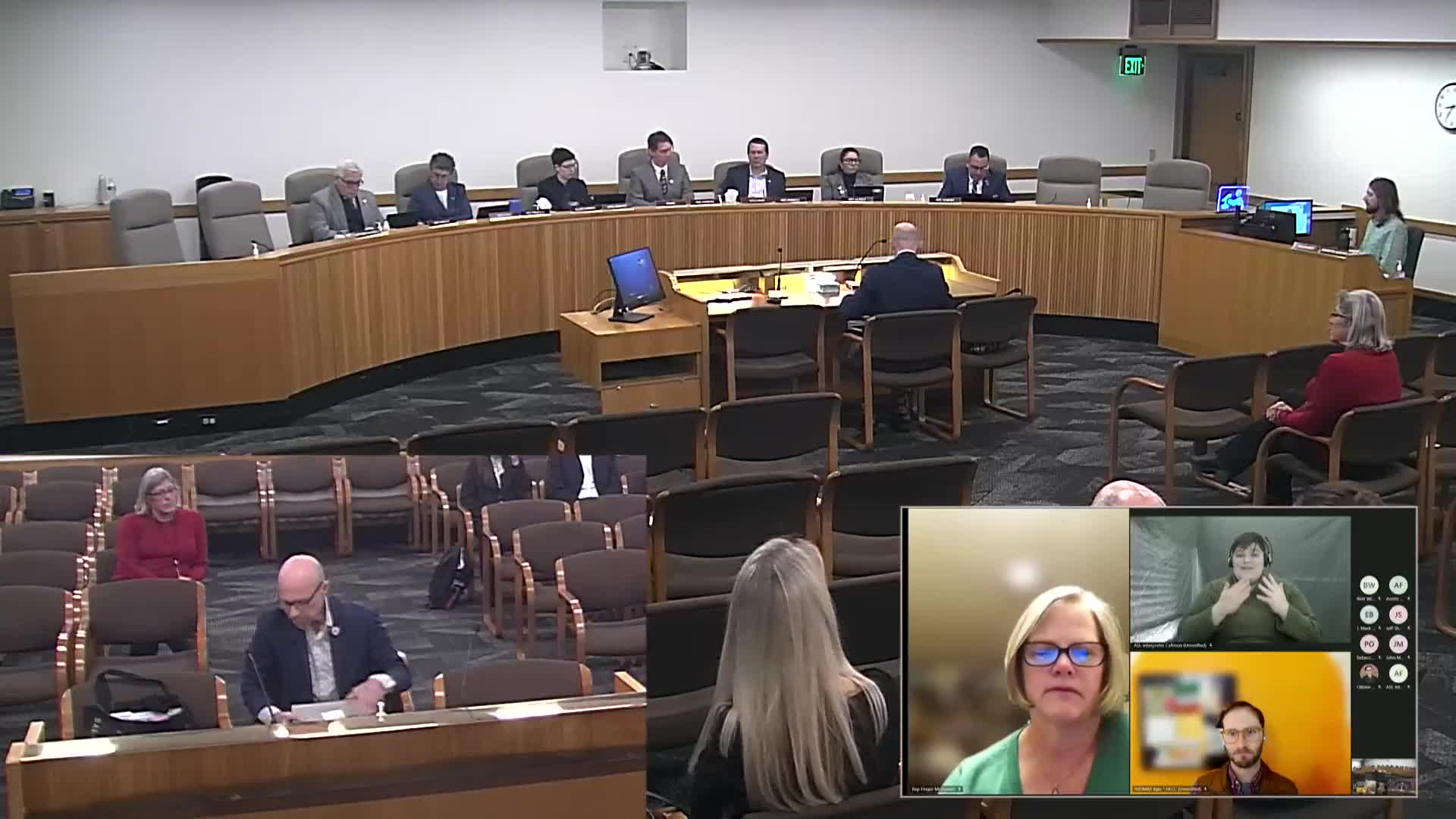Committee hears community colleges seek higher state matching cap for capital projects
March 11, 2025 | Higher Education, House of Representatives, Committees, Legislative, Oregon
This article was created by AI summarizing key points discussed. AI makes mistakes, so for full details and context, please refer to the video of the full meeting. Please report any errors so we can fix them. Report an error »

The House Committee on Higher Education and Workforce Development held a public hearing March 11 on House Bill 3635, a committee bill that would raise the per-college limit on the aggregate amount of general obligation bonds the state can issue for a single community college's capital construction project from $8,000,000 to $14,250,000.
John Wykoff, deputy director with the Oregon Community College Association, said the $8 million cap has been in place since roughly 2007 and does not reflect inflation or construction cost increases. "If you just looked at consumer price index inflation," Wykoff said, "8,000,000 in 2007 dollars would be about $14,250,000" today; he and other witnesses added that actual building-cost inflation has outpaced CPI at times, especially during the pandemic.
Rebecca Aukin, director of planning and capital construction for Portland Community College, and other community college leaders described recent projects that required state matching funds and said rising costs threaten the ability to modernize facilities that support workforce training in health care, construction trades and auto technology. Mark Browning, president of Blue Mountain Community College, said his institution scaled back a planned project after construction estimates rose above initial projections.
Witnesses noted statutory constraints on community colleges: colleges may request an Article XI-G project only once every four years, and state matching funds must be locally matched by bonds, private donors or other local financing. Testimony explained the bill would not itself appropriate funds or change capital construction approval by the Ways and Means subcommittee; it would raise the cap on the matching amount colleges can request in that approval process.
The committee closed the public hearing without a vote during the session.
John Wykoff, deputy director with the Oregon Community College Association, said the $8 million cap has been in place since roughly 2007 and does not reflect inflation or construction cost increases. "If you just looked at consumer price index inflation," Wykoff said, "8,000,000 in 2007 dollars would be about $14,250,000" today; he and other witnesses added that actual building-cost inflation has outpaced CPI at times, especially during the pandemic.
Rebecca Aukin, director of planning and capital construction for Portland Community College, and other community college leaders described recent projects that required state matching funds and said rising costs threaten the ability to modernize facilities that support workforce training in health care, construction trades and auto technology. Mark Browning, president of Blue Mountain Community College, said his institution scaled back a planned project after construction estimates rose above initial projections.
Witnesses noted statutory constraints on community colleges: colleges may request an Article XI-G project only once every four years, and state matching funds must be locally matched by bonds, private donors or other local financing. Testimony explained the bill would not itself appropriate funds or change capital construction approval by the Ways and Means subcommittee; it would raise the cap on the matching amount colleges can request in that approval process.
The committee closed the public hearing without a vote during the session.
View full meeting
This article is based on a recent meeting—watch the full video and explore the complete transcript for deeper insights into the discussion.
View full meeting
